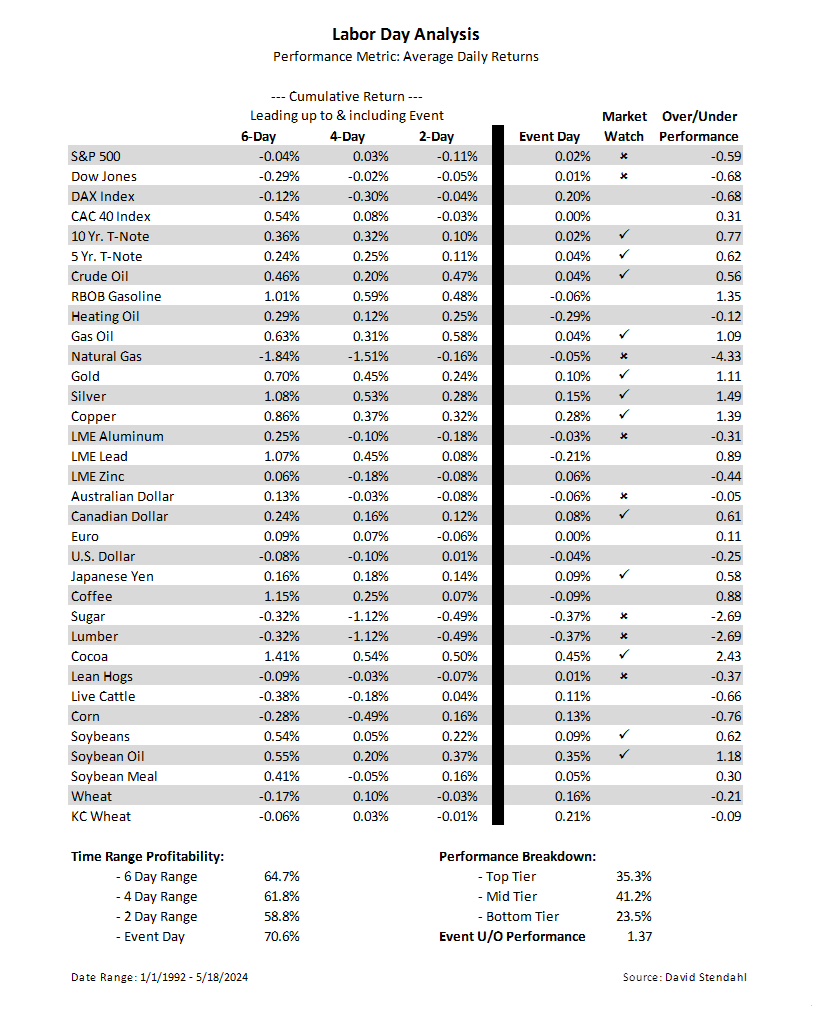Event: Labor Day
Labor Day is observed on the first Monday in September and pays tribute to the contributions and achievements of American workers. The roots of Labor Day date back to the decades following the Civil War when workers took part in strikes and rallies to demand shorter workdays and better working conditions. Peter J. McGuire, a carpenter and labor union leader, came up with the idea for Labor Day. He thought American workers should be honored for their work by giving them their own holiday. He proposed his idea to New York’s Central Labor Union early in 1882. That same year the first celebration of Labor Day was held on Tuesday, September 5, 1882, in New York City. In 1894, President Grover Cleveland signed a law making Labor day a national holiday. It’s also the unofficial end of Summer.
The questions is … How do the markets perform leading up to Labor Day?
Market Comparision
How do the markets perform leading up to Labor Day? The analysis table below breaks down each of the 30+ markets into four separate trading periods. These time frames span 6-days, 4-day, 2-days, and the event day itself. The return performance for each time frame is measured against its normal performance during the year to calculate a final over or underperformance return. This metric quantifies, in percentage points, the advantages or disadvantages associated with Labor Day. Markets highlighted with a checkmark or an “x” should be closely monitored for potential strengths or weakness heading into the event.

Calendar Breakdown by Events
All trading involves risk. Leveraged trading has large potential rewards, but also large potential risk. You must be aware of the risks and be willing to accept them in order to invest in the futures and options markets. Don’t trade with money you can’t afford to lose. This is neither a solicitation nor an offer to Buy/Sell futures or options. No representation is being made that any account will or is likely to achieve profits or losses similar to those discussed. The past performance of any trading system or methodology is not necessarily indicative of future results.
Our strategies have not been developed based on knowledge of or with reference to your particular circumstances, such as financial position, goals, risk-reward preferences, tax situation, brokerage arrangement, investment or trading experience, and so forth. Hence no content or model published here constitutes a recommendation that any particular security, portfolio of securities, transaction, or investment strategy is suitable for any specific person. You alone are solely responsible for determining whether any investment, security or strategy, or any other product or service, is appropriate or suitable for you based on your investment objectives and personal financial situation. More
